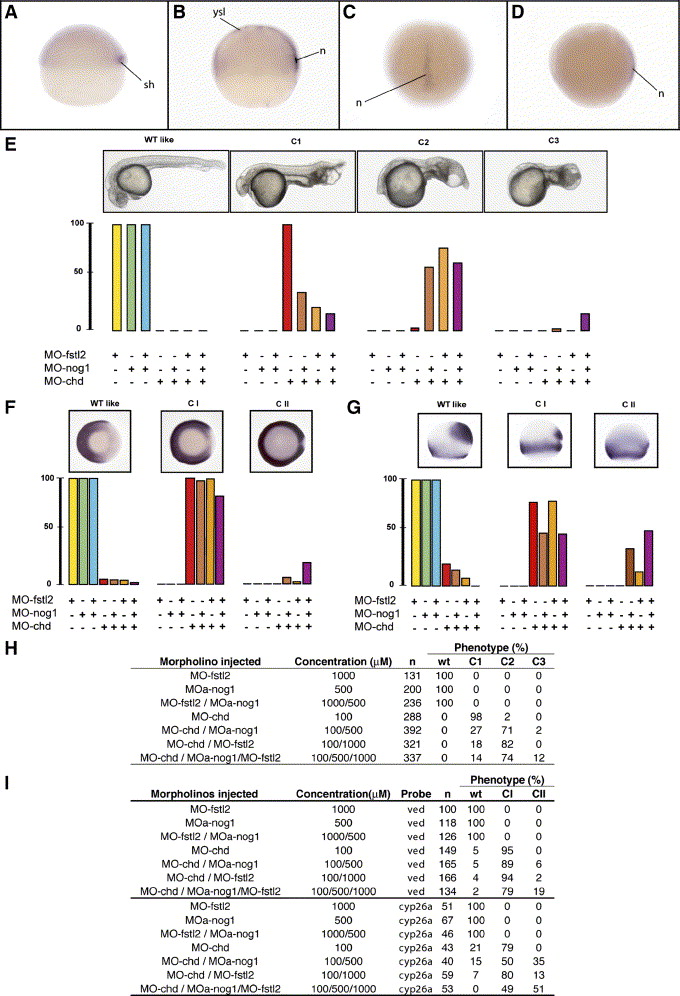Fig. 8 Follistatin-like 2 (Fstl2) is involved in the control of the D/V axis formation. (A) Expression of fstl2 starts at the onset of gastrulation in the deep cells of the embryonic shield (sh). (B) At 60% epiboly, fstl2 transcripts are observed in notochord (n) as well as in the yolk syncytial layer (ysl). (C–D) At 75% epiboly, expression is restricted to the notochord. (E) Morphological analysis of morphant phenotypes at 30 hpf. Single fstl2 or nog1 morphants as well as double fstl2–nog1 morphants display D/V axis similar to wild-type (WT like). Chd morphants or mutants display a ventralization phenotype characterized by a small head and an enlarged hematopoietic territory (C1). Double chd-fstl2; chd-nog1 or triple chd-fstl2-nog1 morphants display stronger ventralization phenotype with very small head and strong enlargement of ventro-posterior territories (C2) or an extreme ventralization phenotype with lack of head (C3). Graphs underneath each picture represent the percentage of embryos observed for the corresponding class observed for the different combination of morpholino injected described in the table in panel H. (F) Analysis of single, double and triple morphants with ved, a marker of ventral territories at gastrula stage. Embryos are in vegetal pole view, dorsal to the right. Whereas at 50% epiboly, in wild-type, ved is detected in the ventral part of the gastrula, in CI, expression of ved is expanded towards dorsal. In CII, this enlargement is even more pronounced. (G) Analysis by in situ hybridization of single, double and triple morphants using cyp26a, a marker of margin and of anterior neural plate at gastrula stage. Embryos are in lateral view, animal pole up. Compared to wild-type-like embryos, in CI, the anterior neurectodermal territory labeled with cyp26a appears strongly reduced while it is almost absent in CII. (I) For the different combinations of morpholinos used, the table records the number and the percentage of embryos for the classes described in panels F and G and analyzed by in situ hybridization with ved and cyp26a.
Reprinted from Developmental Biology, 298(2), Dal-Pra, S., Fürthauer, M., Van-Celst, J., Thisse, B., and Thisse, C., Noggin1 and Follistatin-like2 function redundantly to Chordin to antagonize BMP activity, 514-526, Copyright (2006) with permission from Elsevier. Full text @ Dev. Biol.

